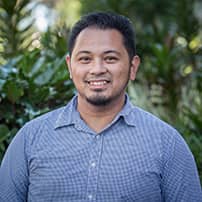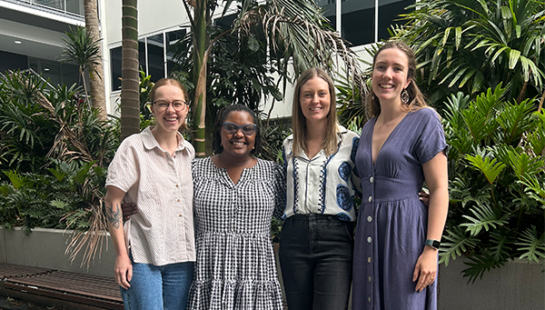Beginnings always give us pause, and a new year is no different.
We have a unique opportunity to reflect on the year past and make decisions about the year to come. At the beginning of the month, Emma reflected on the empathy and solidarity we saw in 2020, and the possibilities of what we could achieve this year. Last week, we heard from Sam about her journey with Sharon, and how the call to end poverty becomes part of our daily lives when we keep the stories of those in poverty close to our hearts.
But how does that work?
Let’s look to Jesus.
Before Jesus began his public ministry, he spent a whole 40 days and 40 nights addressing the state of his heart. He made sure that his heart was ready, strong, and aligned with his Father’s so that it could sustain the path he was about to walk.
Our hearts hold such capacity and potential. They can be wellsprings of life and faith, or toxic black holes of deception and greed. Jesus knew this. So, mirroring the Israelites’ 40 years in the wilderness, Jesus spent 40 days alone in the silence of the wilderness, too.
Full of (and led by) the Spirit, He intentionally carved out space and time away from the world to be challenged, be vulnerable, and have the matters of His heart dissected. In fact, this experience was so important that he would later recount it so that Matthew, Mark, and Luke would be able to record it for all disciples of Jesus to come.
Throughout his life he modelled for us the real power of a surrendered heart.
Again, in the garden of Gethsemane, we saw a vulnerable Jesus retreat to be with the Father, and once again aligned his heart with his Father’s will. He did this leading up to the crucifixion, before committing the ultimate act of sacrifice.
God has a lot to say about our hearts. Much of this is through his Son, but his wisdom is also woven throughout the scriptures. There are more than 700 mentions of the word “heart” in the Bible, but allow me to highlight a few:
“Above all else, guard your heart, for everything you do flows from it.” – Proverbs 4:23
“As water reflects the face, so one’s life reflects the heart.” – Proverbs 27:19
“The heart is deceitful above all things and beyond cure. Who can understand it?” – Jeremiah 17:9
“Truly I tell you, if anyone says to this mountain, ‘Go, throw yourself into the sea,’ and does not doubt in their heart but believes that what they say will happen, it will be done for them.” – Mark 11:23
“Blessed are the pure in heart, for they will see God.” – Matthew 5:8
“For where your treasure is, there your heart will be also.” – Matthew 6:21
It’s clear that we should be prioritising our hearts, guarding them and investigating the desires that they hold.
This brings us back to the new year. It’s often an exciting time of year, full of optimism, resolutions and good intentions. But unless we address the heart that motivates our actions, it can be hard to stick the landing.
Our actions reveal our heart, so if we want to change our actions we best start with our hearts, like Jesus did.
Are there things in our heart that conflict with the practice of ending poverty?
The answer is probably yes. And that’s ok!
When we allow our heart to see and feel the injustice of poverty, we might uncover some things in our heart that need addressing. Luckily, we don’t have to do this alone – we have each other, and we have a kind and patient God who walks the journey with us.
The reality is that the journey to end poverty conflicts with the very culture we live in.
Instead of acquiring more and more, we are called to give away. We are called to examine our relationship with money and possessions, as Bonnie wrote about a few weeks ago. God’s word tells us that that “the love of money is the root of all kinds of evil” (1 Timothy 6:12). When the love of money is in our heart, it conflicts with our love for the vulnerable.
When we take the time to align our hearts with God’s heart for the vulnerable, our actions begin to align with Jesus’ actions of service to the vulnerable. Next week we will talk more about God’s incredible plan to bring justice and fullness of life to those living in poverty, and how we are also transformed in this process.
So, as we make our resolutions for the new year and commit to ongoing action toward ending poverty, be it through regular giving, more ethical purchasing practices, or using our voices on behalf of the vulnerable, let’s keep checking in on our heart, because out of it all things flow. And God is in the business of making us new every day.



 Kelsea Clingeleffer,
Kelsea Clingeleffer,

 Gina Snodgrass
Gina Snodgrass